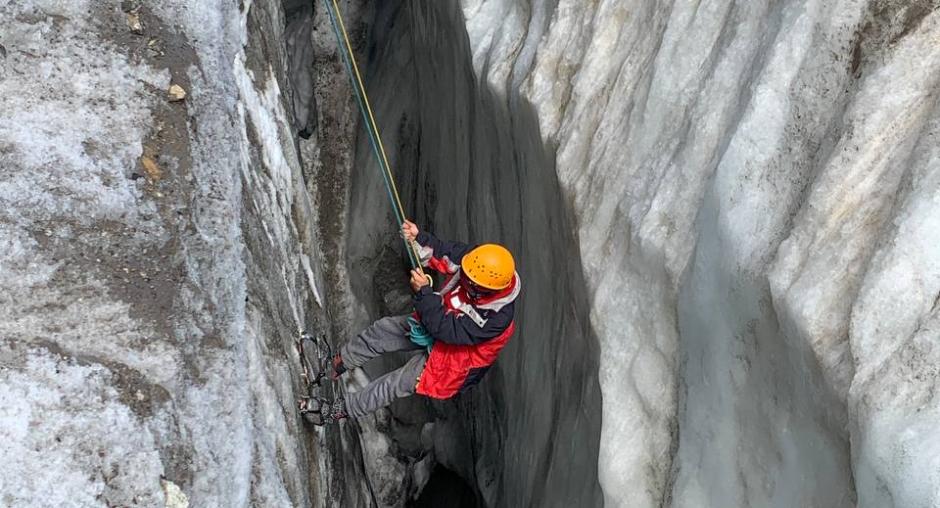OSCE Supports Safety Training Course for Glacier Work in Kyrgyz Republic

The OSCE Programme Office in Bishkek is providing support for a comprehensive training course on safety regulations for working on glaciers in the Kyrgyz Tian Shan and Pamir-Alay regions. This initiative aims to enhance the safety and efficiency of glaciological activities conducted in these critical areas.
One of the primary focal points of this endeavor is the Kara-Batkak glacier, a vital reference point for glaciological monitoring within the Kyrgyz Republic. Stretching over 4 kilometers and spanning altitudes from 3,360 to 4,800 meters, this glacier has been under comprehensive observation since 1956. Since 2006, the Tian-Shan High Mountain Scientific Centre (TSHMSC), operating under the Institute of Water Problems and Hydropower of the National Academy of Sciences, has undertaken the responsibility of monitoring this glacier.
The core objective of these ongoing observations is to elucidate the dynamics of glacial changes, ultimately facilitating forecasts of climatic shifts within the Kyrgyz Republic and Central Asia as a whole. However, the Kara-Batkak glacier poses inherent dangers, making it one of the most challenging sites for glaciological monitoring.
Acknowledging the paramount importance of equipping personnel with the skills for safe and autonomous glacier navigation, the OSCE Programme Office in Bishkek has taken the initiative to support a specialized training course. This training, conducted on the Kara-Batkak glacier in the Jeti-Oguz district of the Issyk-Kul province was conducted from 31 August to 5 September, 2023. The training course brought together participants from various relevant organizations, including the Institute of Water Problems and Hydropower of the National Academy of Sciences of the Kyrgyz Republic, Kyrgyz Hydromet (Kyrgyz Hydrometeorological Service), Central Asian Institute of Applied Geosciences, and the TSHMSC itself.
Upon the conclusion of the training consultants will draft comprehensive safety guidelines tailored specifically for glacier-related work. These guidelines will subsequently undergo scrutiny by the TSHMSC management and receive approval from the relevant government authorities, further fortifying safety standards and protocols within the region's glaciological community.
OSCE’s support for this training course underscores its commitment to promoting safety and facilitating scientific endeavors in the challenging and vital field of glaciology within the Kyrgyz Republic and across the Central Asian region.
